With new technologies revolutionizing data collection, wildlife researchers are becoming increasingly able to collect data at much higher volumes than ever before. Now we are facing the challenges of putting this information to use, bringing the science of big data into the conservation arena. With the help of machine learning tools, this area holds immense potential for conservation practices. The applications range from online trafficking alerts to species-specific early warning systems to efficient movement and biodiversity monitoring and beyond.
However, the process of building effective machine learning tools depends upon large amounts of standardized training data, and conservationists currently lack an established system for standardization. How to best develop such a system and incentivize data sharing are questions at the forefront of this work. There are currently multiple AI-based conservation initiatives, including Wildlife Insights and WildBook, that are pioneering applications on this front.
This group is the perfect place to ask all your AI-related questions, no matter your skill level or previous familiarity! You'll find resources, meet other members with similar questions and experts who can answer them, and engage in exciting collaborative opportunities together.
Just getting started with AI in conservation? Check out our introduction tutorial, How Do I Train My First Machine Learning Model? with Daniel Situnayake, and our Virtual Meetup on Big Data. If you're coming from the more technical side of AI/ML, Sara Beery runs an AI for Conservation slack channel that might be of interest. Message her for an invite.
Header Image: Dr Claire Burke / @CBurkeSci

Explore the Basics: AI
Understanding the possibilities for incorporating new technology into your work can feel overwhelming. With so many tools available, so many resources to keep up with, and so many innovative projects happening around the world and in our community, it's easy to lose sight of how and why these new technologies matter, and how they can be practically applied to your projects.
Machine learning has huge potential in conservation tech, and its applications are growing every day! But the tradeoff of that potential is a big learning curve - or so it seems to those starting out with this powerful tool!
To help you explore the potential of AI (and prepare for some of our upcoming AI-themed events!), we've compiled simple, key resources, conversations, and videos to highlight the possibilities:
Three Resources for Beginners:
- Everything I know about Machine Learning and Camera Traps, Dan Morris | Resource library, camera traps, machine learning
- Using Computer Vision to Protect Endangered Species, Kasim Rafiq | Machine learning, data analysis, big cats
- Resource: WildID | WildID
Three Forum Threads for Beginners:
- I made an open-source tool to help you sort camera trap images | Petar Gyurov, Camera Traps
- Batch / Automated Cloud Processing | Chris Nicolas, Acoustic Monitoring
- Looking for help with camera trapping for Jaguars: Software for species ID and database building | Carmina Gutierrez, AI for Conservation
Three Tutorials for Beginners:
- How do I get started using machine learning for my camera traps? | Sara Beery, Tech Tutors
- How do I train my first machine learning model? | Daniel Situnayake, Tech Tutors
- Big Data in Conservation | Dave Thau, Dan Morris, Sarah Davidson, Virtual Meetups
Want to know more about AI, or have your specific machine learning questions answered by experts in the WILDLABS community? Make sure you join the conversation in our AI for Conservation group!
- @catwasp
- | She/her
- 0 Resources
- 0 Discussions
- 19 Groups
Designer based in Denmark
- 0 Resources
- 1 Discussions
- 6 Groups
Electronics Engineer working in the development of smart conservation technology solutions.
- 0 Resources
- 0 Discussions
- 1 Groups
- @CathyNj
- | She
Catherine Njore is a seasoned Cartographer with over 17yrs experience and specializing in children cartography. She recently designed a Cartography: Fun with Maps Program(CFMP); a program that assists children to learn how to draw, read and use maps effectively.

- 1 Resources
- 10 Discussions
- 6 Groups
- @bluevalhalla
- | he/him
BearID Project & Arm
Developing AI and IoT for wildlife



- 0 Resources
- 23 Discussions
- 6 Groups
Addax Data Science
Wildlife ecologist with a special interest in machine learning



- 0 Resources
- 11 Discussions
- 2 Groups
- @BrunaTeixeira
- | She
Master and PhD student in the Postgraduate Program in Animal Biology. She works mainly in Landscape Ecology with an emphasis on bioacoustics and interactions between primates.

- 0 Resources
- 0 Discussions
- 2 Groups
- @jcturn3
- | He/Him
Colorado State University
I am a graduate student at Colorado State University working to develop novel acoustic technology for remotely monitoring wildlife.

- 0 Resources
- 10 Discussions
- 3 Groups
- 0 Resources
- 0 Discussions
- 4 Groups
- @matt_hron
- | He/Him
Wildlife Protection Solutions (WPS)
Product Manager at Wildlife Protection Solutions

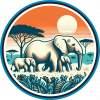

- 0 Resources
- 7 Discussions
- 8 Groups
- @devizeskayak
- | he/him
- 0 Resources
- 0 Discussions
- 1 Groups
Technical Specialist at FFI: loves data management, maps, remote sensing & GIS for conservation

- 0 Resources
- 2 Discussions
- 9 Groups
May 2024
September 2024
event
October 2024
December 2023
event
November 2023
event
event
44 Products
Recently updated products
12 Products
Recently updated products
WILDLABS Awards 2024: Supporting accessible, affordable, and effective innovation for nature
1 December 2023 11:00am
AI Earth: Using AI to tackle Climate Change
27 November 2023 10:16am
AWMS Conference 2023
Instant Detect 2.0 and related cost
16 November 2023 12:50am
16 November 2023 2:12pm
Thank You for your valuable update Sam
16 November 2023 2:30pm
Hello Sam,
What would you say would be the estimate cost was for the first version Instant Detect 1.0 ? That might help my research ?
Catch up with The Variety Hour: November 2023
16 November 2023 12:59pm
Software Engineer at Rainforest Connection & Arbimon
14 November 2023 12:30am
Seeking Advice for Biodiversity Methodology
10 November 2023 3:58pm
Insight; a secure online platform designed for sharing experiences of conservation tool use.
7 November 2023 1:01pm
A secure platform designed for those working to monitor & protect natural resources. Insight facilitates sharing experience, knowledge & tools to increase efficiency & effectiveness in conservation. By sharing we reduce time & money spent to find, test, & implement solutions.
DeepFaune: a software for AI-based identification of mammals in camera-trap pictures and videos
14 July 2023 3:14pm
24 October 2023 8:46pm
Hello to all, new to this group. This is very exciting technology. can it work for ID of individual animals? we are interested in Ai for identifying individual jaguars (spots) and andean Bears (face characteristics). Any recommendation? contact? thanks!
German
25 October 2023 8:57am
That's a very interesting question and use case (I'm not from deepfaune). I'm playing with this at the moment and intend to integrate it into my other security software that can capture and send video alerts. I should have this working within a few weeks I think.
The structure of that software is that it is two stage, the first stage identifies that there is an animal and it's bounding box and then there's a classification stage. I intend to merge the two stages so that it behaves like a yolo model so that the output is bounding boxes as well as what type of animal it is.
However, my security software can cascade models. So if you were able to train a single stage classifier that identifies your particular bears, then you could cascade all of these models in my software to generate an alert with a video saying which bear it was.
4 November 2023 4:51am
Hi @GermanFore ,
I work with the BearID Project on individual identification of brown bears from faces. More recently we worked on face detection across all bear species and ran some tests with identifying Andean bears. You can find details in the paper I linked below. We plan to do more work with Andean bears in 2024.
I would love to connect with you. I'll send you a message with my email address.
Regards,
Ed
A SPOTLIGHT ON CUTTING-EDGE BIOMONITORING TECHNOLOGIES
31 October 2023 9:09am
15 November 2023 6:10pm
31 January 2024 7:17pm
Nepal's tiger conservation gets tech boost with AI-powered deer tracking
30 October 2023 1:23pm
Researchers in Nepal are using vertical cameras and AI technology to track and profile individual spotted deer (Axis axis), similar to the methods used for tigers.
Acoustic Monitoring Specialist
26 October 2023 7:32pm
AI + Environment Summit
26 October 2023 11:15am
Entomological Research Specialist for Automated Insect Monitoring
25 October 2023 7:21pm
Lead Data Engineer - Climate Solutions, Open Earth
25 October 2023 11:07am
Automated moth monitoring & you!
24 October 2023 8:52am
Biodiversity modelling in the AI era
23 October 2023 12:03pm
Soundscapes and deep learning enable tracking biodiversity recovery in tropical forests
20 October 2023 3:38pm
New paper in Nature Communications from Jörg Müller et al. using BAR-LT recorders and CNNs to track biodiversity recovery. Study shows that #soundscapes 🎙🎶 and deep learning are powerful tools for tracking biodiversity recovery in tropical forests
ZSL Research Fellow (x3 roles)
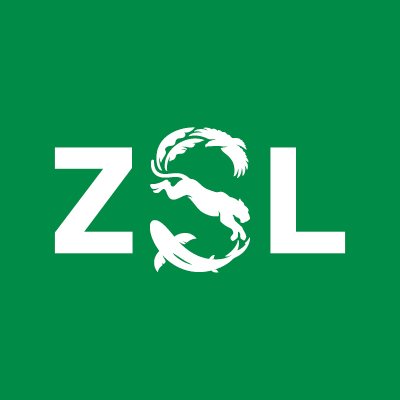 Zoological Society of London
Zoological Society of London
20 October 2023 3:34pm
PhD Opportunity: YELLOWHAMMER - Individual acoustic monitoring to study song culture evolutionwithin and between dialect areas
20 October 2023 12:54pm
PhD Opportunity: Distributed sound source localisation and separation for wireless microphone networks consisting of two-microphone nodes
20 October 2023 12:47pm
PhD Opportunity: 'FLOATERS' position at Bioacoustic AI Doctoral Network
20 October 2023 12:36pm
Catch up with The Variety Hour: October 2023
19 October 2023 11:59am
Anyone else attending ADSA in Texas next week?
17 October 2023 8:46pm
Practical strategies for conservationists in an increasingly digital world
9 October 2023 5:04pm
Leveraging new digital technologies for conservation impact
9 October 2023 4:39pm
AI Challenge aiming to automate the identification process of sea turtles
6 October 2023 11:38am
The current method of tagging turtles for monitoring is intrusive, time-consuming, and expensive. Find out how automated recognition software using photo and video data can enhance monitoring efficiency and assist organizations dedicated to protecting these important species.
Four Amazing Impacts of This A.I.-Powered Bird Migration Tracker | Science| Smithsonian Magazine
5 October 2023 4:26pm
Check out how BirdCast's newest advances can provide detailed flight forecasts of millions of birds!



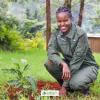

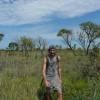






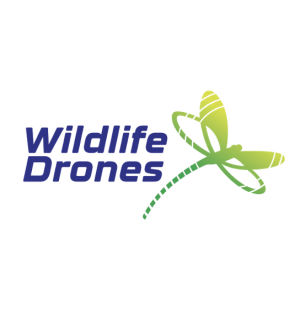











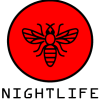
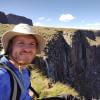
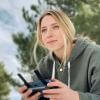



16 November 2023 10:55am
Hi Kaarthika, hi all,
ZSL's Instant Detect 2.0 is currently undergoing Beta testing with external partners and so is still pre-production. We therefore do not have final pricing for the system.
Saying this, we have got a manufacturing partner fully set-up who has already completed two full build rounds of the system, one in 2020 and another in 2023. This means we actually have a very good idea of the system's build costs and what these are likely to be when we can manufacture the system in volume.
While I cannot release this pricing yet, I am confident that we will have an unparalleled proposition.
In particular, the satellite airtime package we can supply to conservationists due to the generosity of the Iridium Satellite Company means that each system can send 3,600 (25-50KB) images a month from anywhere in the world for a single fixed fee. This equates to around a 97% discount to the normal commercial rates.
We are currently very busy fundraising so that we can make this final step to scale the system.
If we can secure this funding, we hope to go into volume production by mid-2024.
Best wishes,
Sam